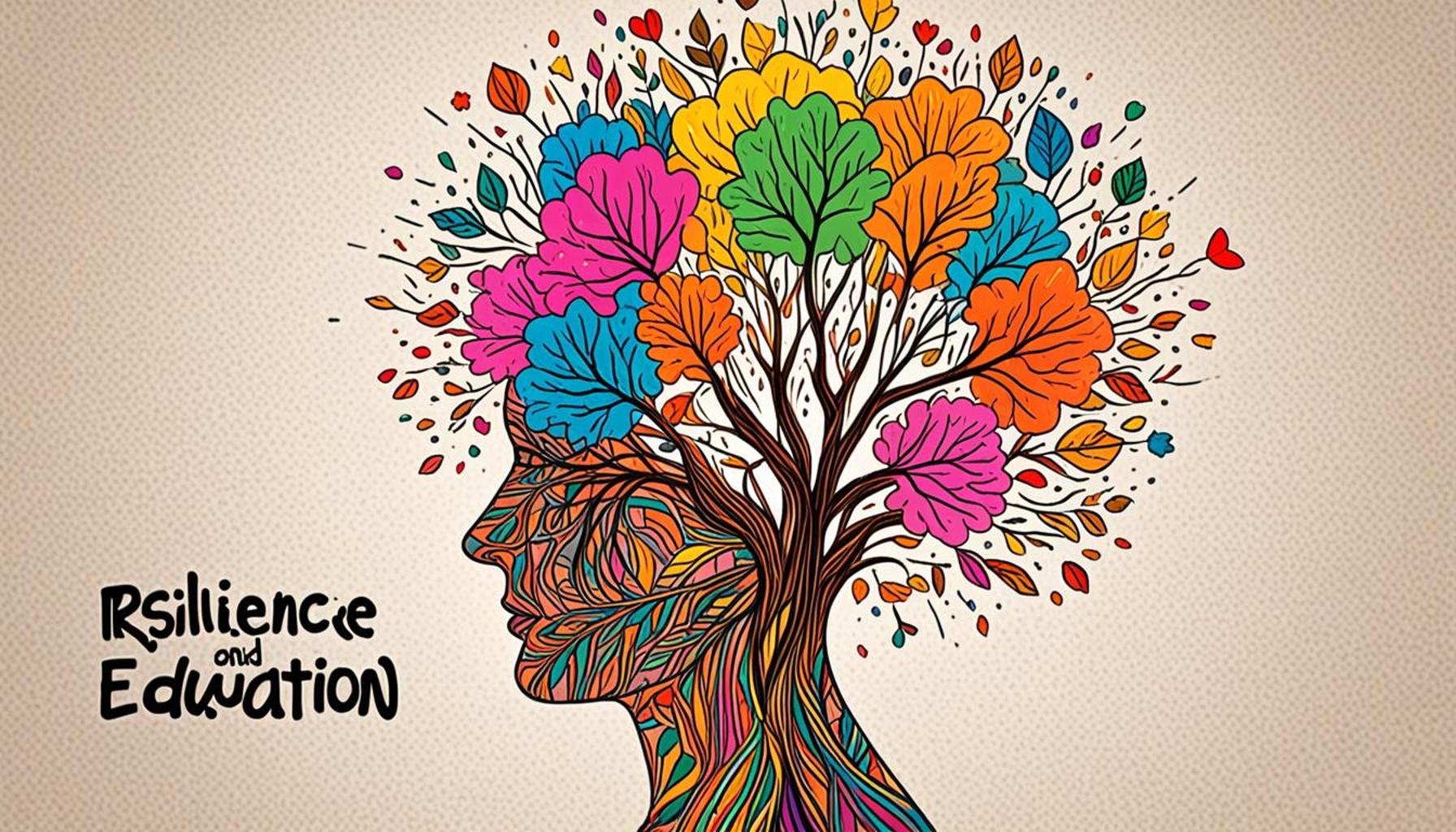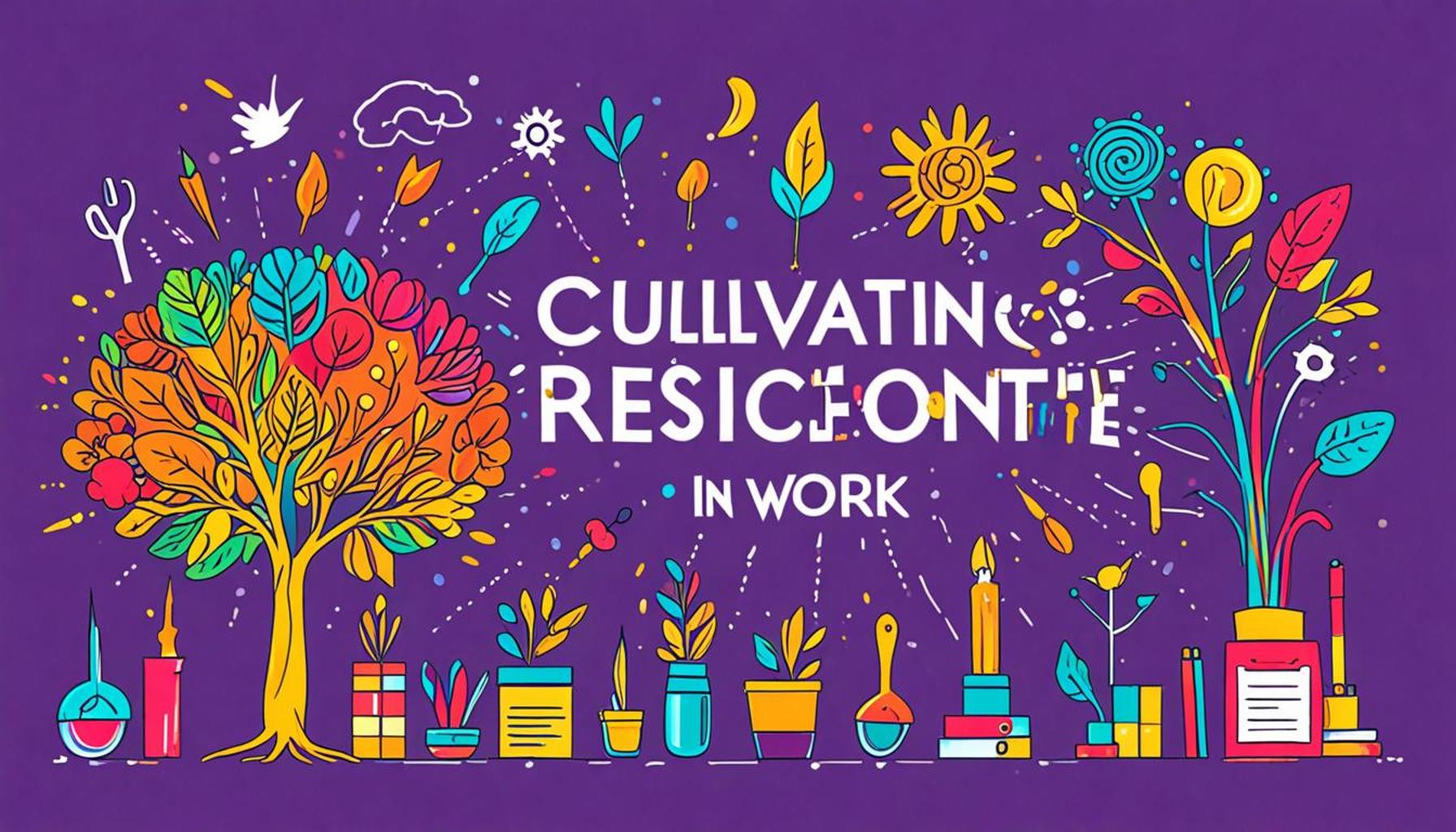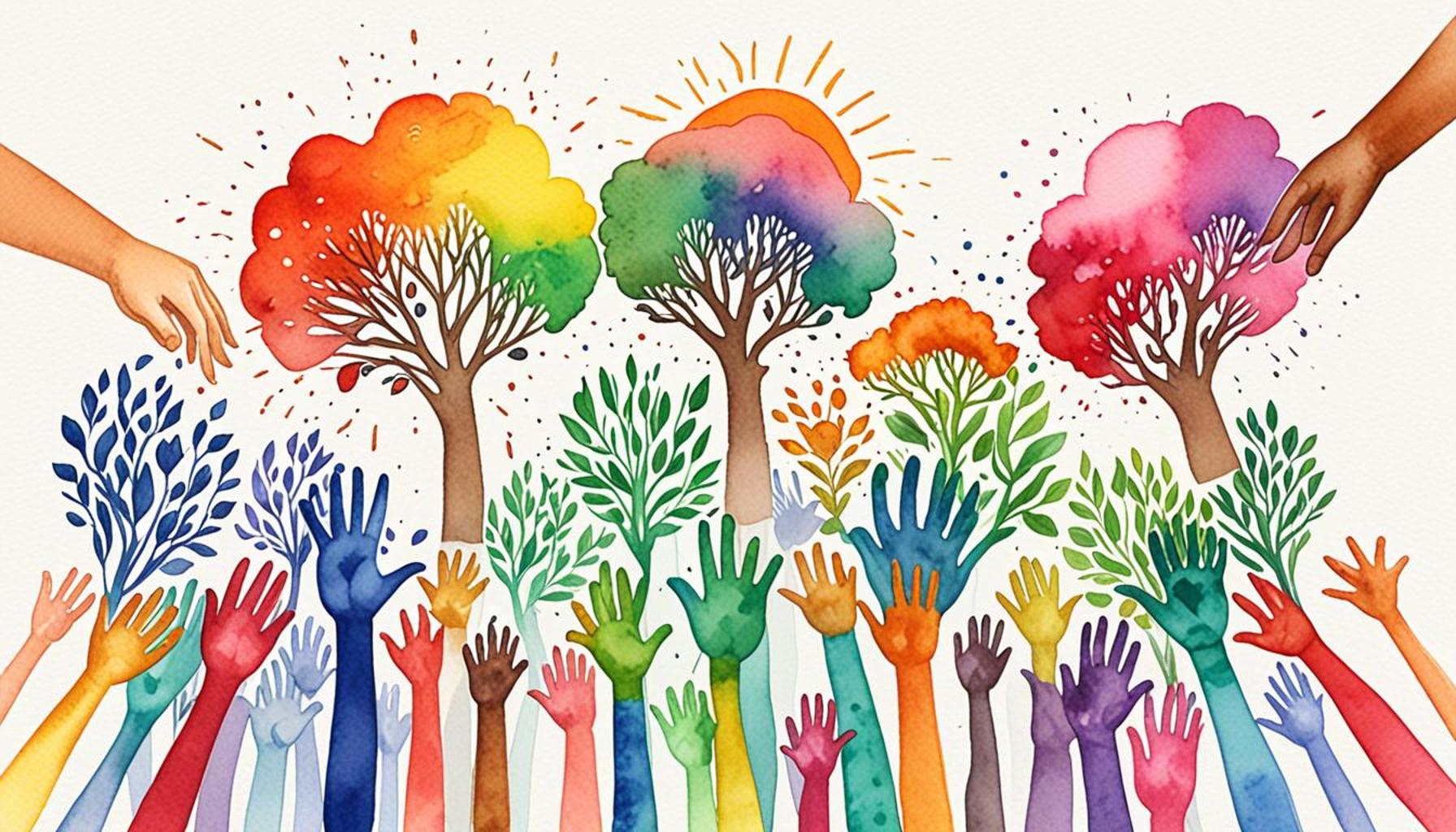Resilience and Education: Growth Mindset Techniques for Students and Educators

The Importance of Resilience in Education
In today’s dynamic educational environment, the concept of resilience stands out as an essential attribute for both learners and educators. Resilience is not merely about enduring hardships; it encompasses the capacity to adapt, bounce back from challenges, and sustain motivation even when faced with adversity. This trait is particularly vital in the Nigerian context, where educational hurdles such as inadequate resources, fluctuating internet access, and varying levels of socio-economic stability can impact learning outcomes. Thus, fostering resilience must be a priority not only for students but also for teachers, as both parties navigate an often tumultuous educational landscape.
The Power of a Growth Mindset
A key component in building resilience within educational contexts is the concept of a growth mindset. This term, popularized by psychologist Carol Dweck, emphasizes the belief that abilities can be developed through effort, persistence, and learning. In Nigeria, where students face numerous external pressures, cultivating a growth mindset has the potential to transform challenges into stepping stones for success. For instance, a student struggling with mathematics may learn to view their setbacks as opportunities to enhance their understanding rather than as indicators of failure. This shift in perspective can lead to several positive outcomes:
- Adaptability: A growth mindset encourages students to embrace various learning styles and methodologies, allowing them to find what works best for them.
- Perseverance: It promotes tenacity, urging students to keep trying, as seen in personal stories like that of a Nigerian entrepreneur who battled through several business failures before finding success.
- Continuous Learning: With this mindset, learners are likely to cultivate a lifelong passion for acquiring new knowledge, reflecting an innate curiosity that fuels personal and professional development.
Techniques to Foster Resilience
Building resilience is a multifaceted endeavor that requires strategic implementation within educational practices. Teachers play a crucial role in this developmental journey, wherein they can incorporate various techniques to instill resilience among their students:
- Positive Reinforcement: Recognizing effort over mere results can significantly enhance student motivation. For example, celebrating small victories, such as improved attendance or participation, can foster an encouraging atmosphere.
- Goal Setting: Encouraging students to establish and periodically review their personal educational milestones instills a sense of ownership in their learning journey. This practice not only builds motivation but also provides them with tangible markers of progress.
- Mindfulness Practices: Introducing techniques such as meditation and emotional awareness activities can help students develop self-regulation, assisting them in managing stress, thereby enhancing their overall academic experience.
As Nigerian educators and students navigate their educational landscapes, understanding the intersections of resilience and education becomes essential. Ultimately, by actively promoting a growth mindset and adopting these strategic techniques, the potential exists to transform educational challenges into opportunities for growth and success, equipping individuals to confront the uncertainties ahead with confidence.
SEE ALSO: Click here to read another article
Strategies for Enhancing Resilience in Education
Fostering resilience in educational settings is not an isolated endeavor; rather, it requires a comprehensive approach that includes students, educators, and the wider school community. In Nigeria, where many schools face challenges such as overcrowded classrooms and limited resources, implementing effective strategies becomes critical to ensuring that students not only survive but thrive. Schools can create a nurturing environment that enhances resilience through targeted actions and initiatives.
Building a Supportive Community
One of the fundamental aspects of fostering resilience is the creation of a strong support system within the school environment. This community can take various forms, and its impact can be profound. The following strategies can help strengthen this supportive network:
- Peer Mentorship Programs: Establishing mentorship initiatives where older students guide and support younger peers can create strong bonds within the school community. These interactions can help students feel understood and motivate them in their academic pursuits.
- Teacher-Student Relationships: Encouraging open communication between students and teachers fosters trust. Teachers who show empathy and understanding can help students navigate their challenges more effectively, reinforcing their resilience.
- Parental Involvement: Actively engaging parents in their children’s education reinforces a support network beyond school. Regular workshops that educate parents on resilience-building techniques can contribute to a unified approach in nurturing students’ growth.
Embedding Resilience in the Curriculum
Curriculum design plays a pivotal role in accommodating resilience and supporting a growth mindset among students. Integrating resilience-focused content into various subjects opens avenues for learning that emphasize adaptability and persistence. Consider the following approaches:
- Incorporating Real-Life Challenges: By using case studies or scenarios that present real-life challenges, educators can stimulate discussions that revolve around problem-solving. For instance, discussing how local entrepreneurs overcame obstacles can inspire students to see setbacks as opportunities for growth.
- Skills Development Workshops: Organizing workshops that focus on critical skills such as communication, teamwork, and emotional management equips students with tools necessary to handle adversity. These workshops can include role-playing activities that simulate pressure scenarios to practice resilience.
- Service Learning Projects: Engaging students in community service not only contributes to societal betterment but also instills a sense of empathy and responsibility. These experiences can bolster resilience by exposing students to various challenges faced by others.
As resilience continues to take center stage in conversations about education, it is crucial for Nigerian educators to adopt and customize strategies that resonate with their unique contexts. Emphasizing community support and embedding resilience in the curriculum will not only engage students but also cultivate an educational atmosphere where they can flourish amidst adversity. By embracing these techniques, schools can nurture a generation of resilient learners, prepared to tackle future challenges with unwavering determination.
Resilience and Education: Growth Mindset Techniques for Students and Educators
In the realm of education, fostering a growth mindset is essential for students and educators alike. This approach emphasizes that abilities can be developed through dedication and hard work, which in turn cultivates resilience in the face of challenges. Understanding and implementing techniques that promote this mindset can lead to substantial improvements in academic performance and emotional wellbeing.
One of the key strategies for developing a growth mindset involves the integration of resilience-building practices within the curriculum. This can include reflection exercises, where students analyze past challenges and discuss how they overcame them. Such discussions not only enhance emotional intelligence but also instill a sense of vulnerability that encourages risk-taking in learning. When students see failures as opportunities for growth, they become more likely to engage with difficult material and persist through obstacles.
For educators, embodying a growth mindset creates a ripple effect throughout the classroom. By modeling behaviors such as accepting constructive criticism and sharing their own learning journeys, teachers can inspire their students to adopt a similar approach. Celebrating small victories and recognizing effort over innate talent becomes a central theme, shifting the overall classroom culture towards resilience and perseverance.
The use of specific growth mindset techniques also serves to reinforce these principles. Techniques such as goal-setting and providing regular feedback create a structured approach to mastery. Help students set achievable, incremental goals, making challenges less daunting while fostering a sense of accomplishment as they progress. This structured encouragement not only boosts confidence but also fosters a deeper understanding of the learning material.
| Advantages | Impact on Education |
|---|---|
| Improved Student Motivation | Encouraging a growth mindset increases engagement as students feel more capable of learning. |
| Enhanced Problem-Solving Skills | Students learn to view challenges as opportunities, improving critical thinking abilities. |
Moreover, the incorporation of collaborative learning activities not only reinforces resilience but also helps build a supportive classroom environment. When students work together, they can share insights and strategies that enhance their understanding. This shared experience can foster vulnerability and cooperation, key elements in developing both resilience and a growth mindset.
Ultimately, promoting resilience through a growth mindset framework is not just about academic success; it instills lifelong skills that extend beyond the classroom. By shifting perspectives, both students and educators can create a culture of continuous learning and improvement, paving the way for enhanced personal and professional outcomes.
YOU MAY ALSO LIKE: Read read another article
Fostering a Growth Mindset through Educational Practices
Enhancing resilience in education goes hand in hand with promoting a growth mindset—the belief that abilities and intelligence can be developed through dedication and hard work. This mindset empowers students to embrace challenges, persist through difficulties, and learn from criticism. Therefore, educators must deliberately embed growth mindset principles in their pedagogical approaches. Here are several strategies to foster this mindset in Nigerian classrooms and beyond:
Encouraging Self-Reflected Learning
One of the most impactful ways to foster resilience and a growth mindset is through self-reflected learning practices. This process encourages students to evaluate their progress and understand their learning journey. Here are a few effective methods to implement:
- Personal Learning Journals: Providing students with journals to document their educational experiences allows them to reflect on their successes and setbacks. By regularly writing about what they learned from challenges, students appreciate their ability to overcome obstacles.
- Goal Setting: Teaching students to set realistic and achievable goals fosters a sense of ownership over their learning. When students reach smaller milestones along the way to larger goals, it bolsters their understanding that effort over time leads to success.
- Feedback Mechanisms: Establishing a culture of constructive feedback, where students are encouraged to view criticism positively, can enhance their resilience. Educators should model how to accept feedback and provide opportunities for students to revise their work based on peer and teacher input.
Promoting Collaborative Learning Environments
Collaboration among students is a vital component for shaping resilience and a growth mindset. Working with peers not only enhances academic performance but also fosters social connections that build emotional resilience. Here are effective ways to implement collaborative learning:
- Group Projects: Incorporating team-based projects allows students to confront challenges together, empowering them to support one another through difficulty while collectively sharing the responsibility of success and failure.
- Peer Review Sessions: Facilitating peer review sessions where students assess each other’s work encourages them to engage critically with their classmates’ ideas while embracing collaborative improvement, thus reinforcing the idea that learning is a shared journey.
- Learning Circles: Establishing learning circles, where students can discuss concepts, ask questions, and solve problems as a group, cultivates authentic learning experiences that push them out of their comfort zones.
Integrating Technology to Enhance Resilience
In the digital age, technology can be a robust ally in promoting resilience and a growth mindset. Online platforms and resources can provide students with diverse learning opportunities. Here are innovative ways to leverage technology:
- Adaptive Learning Software: Utilizing adaptive learning tools that personalize the educational experience according to individual student needs empowers them to explore subjects at their pace, reinforcing the belief that sustained effort leads to mastery.
- Online Collaboration Tools: Platforms like Google Workspace allow students to work together on projects irrespective of their physical location, teaching them 21st-century skills and adaptability.
- Digital Reflection Portfolios: Encouraging students to create digital portfolios where they showcase their work and document their learning process can further consolidate their growth mindset by visually tracking their development over time.
By implementing these strategies aimed at fostering a growth mindset and resilience, educators can better prepare Nigerian students for an ever-evolving world. The combination of self-reflective practices, collaborative learning, and technological integration creates a dynamic and adaptive educational environment that promotes resilience as an integral component of learning. As these methods take root, they not only enrich students’ academic journeys but also shape their capabilities as versatile, resilient individuals ready to meet future challenges head-on.
ADDITIONAL INSIGHTS: Expand your understanding here
Conclusion: Building Resilience Through a Growth Mindset
In conclusion, the integration of resilience and growth mindset techniques within educational frameworks is crucial in equipping students for real-world challenges. By embracing the philosophy that intelligence and abilities can be cultivated, both students and educators foster an environment of continuous improvement and adaptability. The implementation of practices such as self-reflected learning, collaboration among peers, and the use of innovative technology creates a powerful ecosystem that nurtures resilience.
As Nigeria’s educational landscape continues to evolve, leveraging these strategies can enhance the emotional and intellectual capabilities of students. Educators, who play a pivotal role as mentors and facilitators, must strive to cultivate a classroom culture where challenges are seen as opportunities, feedback is embraced, and self-growth is celebrated. By prioritizing a growth mindset, schools can contribute to developing well-rounded individuals who not only thrive academically but are also prepared to face life’s uncertainties with confidence.
Ultimately, a committed focus on resilience and a growth mindset leads to lifelong learners who not only excel but also inspire those around them. As we encourage further exploration of these impactful educational practices, we pave the way for a resilient future generation, ready to adapt and innovate in an ever-changing world. Our commitment to fostering these mindsets today will shape the leaders and innovators of tomorrow.



